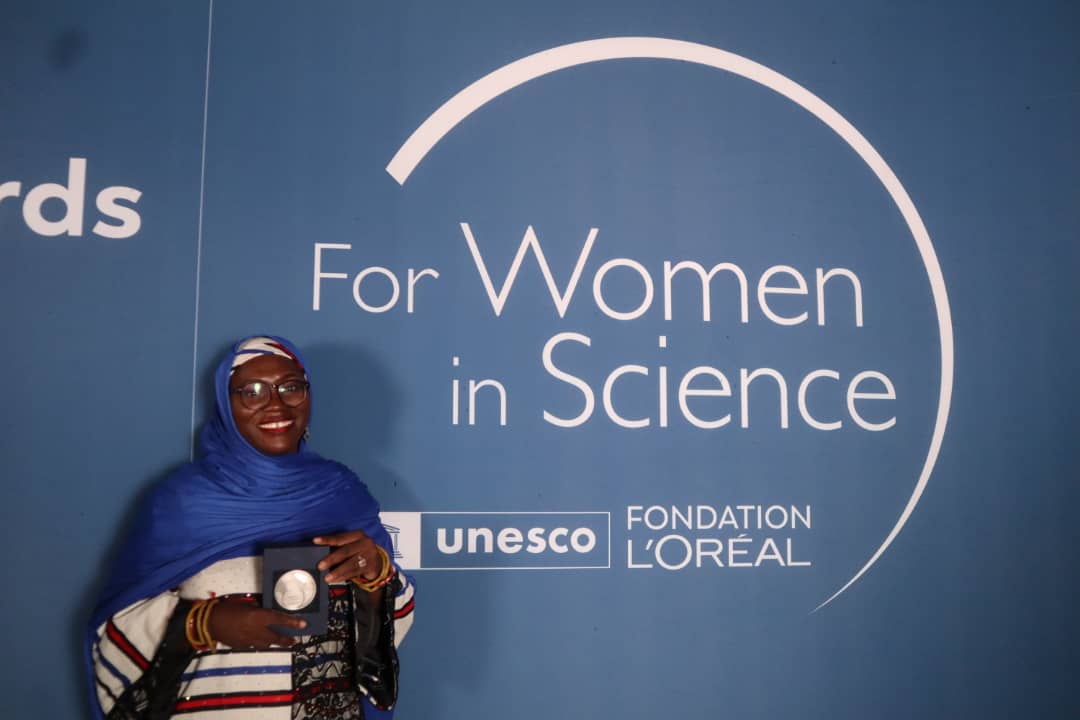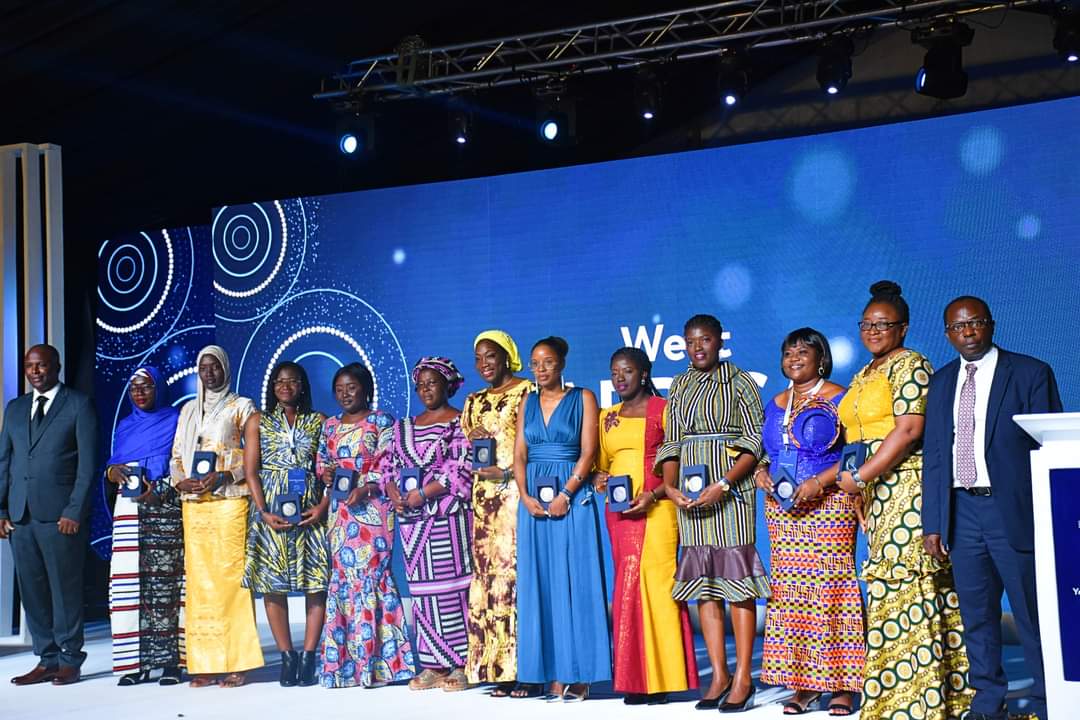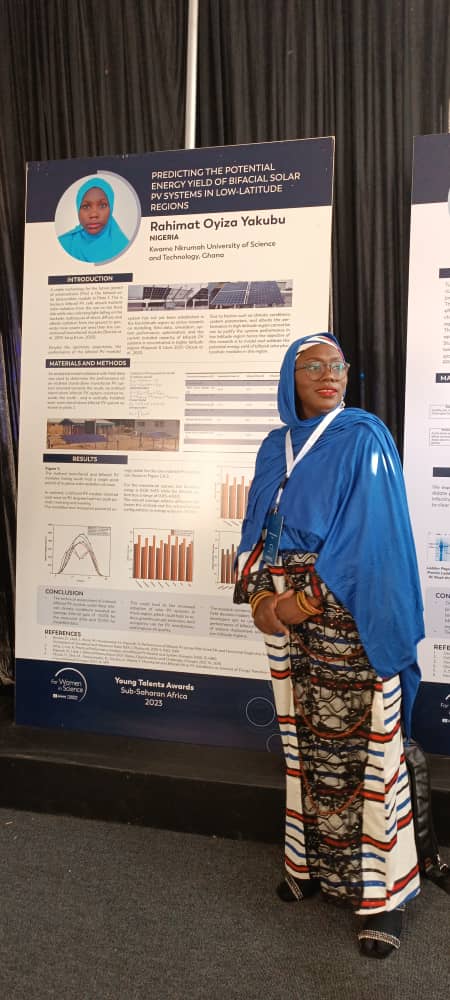KEEP NEWS
Rahimat Oyiza Yakubu, A KEEP Scholar, Receives an Award as One of the 30 Most Promising Females in STEM at the L’Oreal-UNESCO For Women in Science Programme.
Published: 14 Nov 2023

Rahimat Oyiza Yakubu is a KNUST Engineering Education Project (KEEP) Scholar and a graduating Ph.D. student in Sustainable Energy Technologies from the Department of Mechanical Engineering, KNUST.
The United Nations Educational, Scientific and Cultural Organisation (UNESCO) and the Fondation L’Oréal seek to recognise women researchers who, through their work, have contributed to overcoming today's global challenges. The L’Oreal – UNESCO for Women in Science Programme helps empower women scientists to achieve scientific excellence and participate equally in solving the great challenges facing humanity.

This year’s edition took place from 5th – 10th November 2023 in Kasane, Botswana. About 632 women applied for the recognition across Africa, but only 30 applicants won.
Rahimat Oyiza Yakubu, a KNUST Engineering Education Project (KEEP) Scholar and a graduating Ph.D. student in Sustainable Energy Technologies from the Department of Mechanical Engineering, KNUST, was awarded as one of the 30 most promising females in STEM by the President of Botswana.
According to her, she is excited and grateful for the leadership and management training coupled with the € 10,000 support to attend and participate in international conferences. The programme also connects awardees with journalists and podcast creators to give their research findings visibility and recognition.
Rahimat’s research interests are Renewable Energy Technologies, Energy Policy, and Power System analysis. Her research at the PhD level focused on modelling and technical assessment of bifacial solar photovoltaic systems in low latitude regions using West Africa as a case study.

